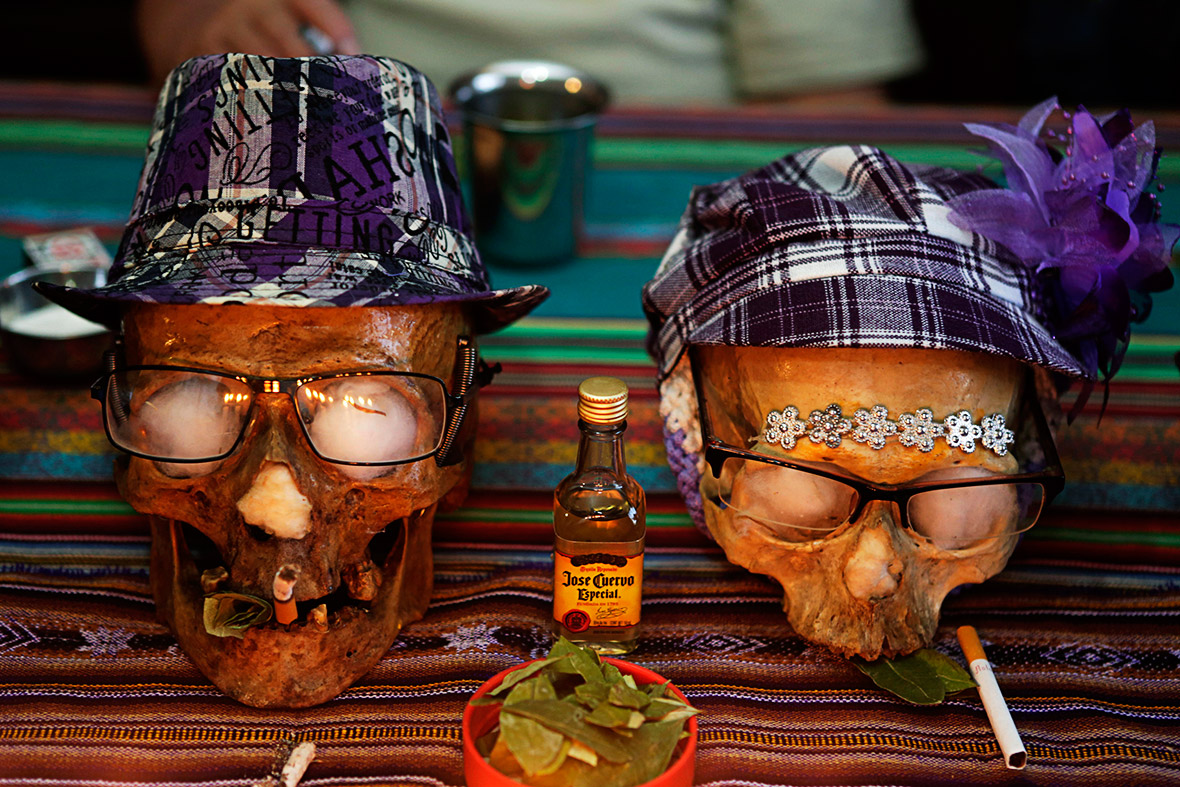Bolivia: Skulls are Offered Cigarettes, Alcohol and Coca Leaves in Macabre Tradition
A macabre tradition rooted in indigenous practices is gaining ground in Bolivia, where an increasing number of people adorn skulls.
The skulls, known as natitas, spend most of the year indoors, but are decorated and paraded to the cemetery on 9 November, a week after All Saints' Day.
Believers offer the skulls flowers, sweets, coca leaves, cigarettes and alcohol in hopes they will bring good fortune and protection.




Tradition stipulates the skulls should be "gifted" to the owner by someone else, though many believers have the skull of a late family member.
Elena Iporre tells the story of how she acquired her skulls: "Socrates [the skull] would visit us every Monday, with its owner. They came to smoke and pray, and then they would take it [the skull] back. And one day it [the skull] came and it has been here ever since. And Paulinita [the female skull], we found her inside a black bag in a bus. We named it Paulinita because when we found it, it had a little hat with a rose in it, which is how we knew it was a woman, and from that moment on, Paulinita remained with the other skulls in my house."
The tradition is believed to arise from the Urus Chipaya custom of disinterring the corpses of loved ones on the first anniversary of their death.
The Roman Catholic Church does not endorse the practice, but when the cemetery's parish refused to open its doors to Day of the Skull believers 12 years ago, they threw stones at the church and broke all the windows. Now, the church is open to believers for a blessing ceremony.



The tradition, a fusion of Catholic and indigenous beliefs, is traditionally practised by Bolivia's indigenous groups. The traditions and cultures of the Aymara, Quechua and other groups remain strong in the country.




© Copyright IBTimes 2025. All rights reserved.






















